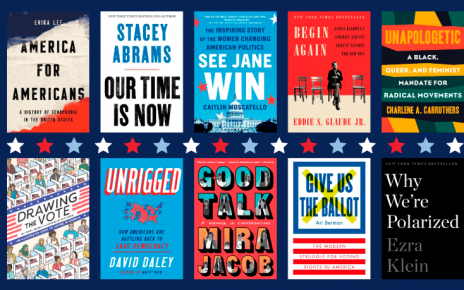I grew up a Black kid in white classrooms in Silver Spring, Maryland. I tested well and was deemed “gifted and talented”. That meant my classes had cutting edge technology, teachers with fancy degrees and books without holes in them because my classmates’ parents were white. They influenced the county to ensure our classes had great resources. As one of few Black kids in those classes, that gave me advantages that came at a painful cost.
My teachers were white, my classmates were white, I was Black.
I boiled, alone, when my History teacher showed images of starving Black bodies, crammed like sardines, into wooden ships during the middle passage. I seared, alone, and embarrassed, as overzealous classmates plowed through the word “nigger” in Huckleberry Finn read alouds. I
stormed out of class, alone and insulted, when a social studies teacher called slavery a “historical inconvenience.”
But racial isolation can be the cost of access for Black kids in our schools. It might have broken me, if not for the dinner table. That’s where my parents shored up my emotional holes from school with cultural grounding.
But that’s also where they taught me business. They talked to me and my sister like adult professionals while our pre-teen feet dangled from legs too short to reach the floor. As a result, I entered the callous world of capitalism and industry with intimate understanding of its blistering coldness. But at that dinner table, I also learned business to be ripe for gamification. The
business game became a passion for me; a passion that feeds me.

Below is an excerpt from my new book, Black Magic: What Black Leaders Learned from Trauma and Triumph, available February 2.
While my father seemed to focus on rules that maintained my family’s physical safety, my mother pushed my sister and me to strategize and achieve. This was her way of giving us financial safety. She taught us the importance of education, corporate advancement, and earning as ways for us as Black people to protect ourselves down the line from misinformation, financial predators, and unexpected disasters. The four of us—mom, dad, sister, brother—sat down for dinner as a family nearly every weeknight in that three-story house on the cul-de-sac. My parents took turns cooking while my sister and I set the table and listened to Stevie Wonder playing in the background. My late maternal grandfather’s paintings adorned the yellow walls of the kitchen. He was a lieutenant colonel in the army and a Vietnam veteran. His paintings depicted people alone with nature. A bullfighter awaiting a charging bull. A camper alone beside a bonfire at night in the woods.
The television was always off. My Xbox was unplugged for the night so I wouldn’t try to rush through a meal to get back to it. A ringing house phone went unanswered. Door-to-door salespeople stopped coming at dinnertime, because my father warded them off. Before an unsuspecting Jehovah’s Witness or Cutco knife salesman could even open his mouth, my dad would make waste of him.
“We don’t want any and if you keep coming back here it’s going to be a problem,” he said before the guy got a word of his spiel out.
My parents protected dinnertime because it was their chance to listen to us, and to teach us who we were and where we came from, before the outside world could force its Eurocentric perspective into our developing minds. And that sort of enrichment required a high level of insulation and focus from all four of us. No distractions.
My mom was an executive at Verizon for most of my childhood, and she ran our kitchen like her boardroom. Dinnertime was regimented. Each time we sat down at our rectangular wooden table, we’d first say grace together. We took turns speaking to God on the family’s behalf at each sitting. Then, my mom would recount the activities of the day at her Fortune 500 employer. By twelve I was familiar with rebrands, layoffs, mergers and acquisitions, initial public offerings, stock options, office politics, and the unstated rules of corporate culture. My mom engaged us in these conversations not as children, but as thought partners. We were invested spectators as she ascended the ranks from entry-level MBA to senior director over the course of my childhood. Race was an important factor in every discussion.
She’d ask what my sister and I thought she should tell her white male boss about her white female subordinate who’d been undermining her for weeks. She considered our thoughts and feedback carefully. I was eleven, my sister fourteen.
We’d brainstorm together with my father until we found a solution we could all live with. We were a mini war room. My mom often reminded us that business was a game, with rules, and additional nuance and risk for Black people. But like any game, it could be solved, and won. I found over time that living as a Black person is a game of its own, with the highest stakes and a similar set of rules.
In high school, I began to jot down the rules in business that I learned at our dinner table boardroom. I’ve paraphrased some of them here:
- Money controls all important decisions. The closer you sit to the money, the more valuable and safe you will be as an employee.
- Someone, somewhere is accounting for you as a human with a dollar amount attached to your name. That is your capitalist value. Your leverage (or lack thereof ) can be reduced to that dollar amount. Be aware of it.
- In hard times, company culture craters. The leverage created by the money you make the company and the strength of your relationships is your safety net.
- In good times for a company, opportunities for promotions and growth emerge, and the money you make the company and the strength of your relationships are your leverage to access them.
- Always make your boss look good to her boss and make sure your boss knows you’ve done so.
- Value is measured by outcomes and not process. No points awarded for trying hard. No bonuses for sending the most emails.
- Do your job first before helping others to do theirs. You will never be rewarded in a way that feels adequate for helping other people do their jobs, especially if that aid comes at the expense of your job. Do your job.
- If you report an issue about a colleague to Human Resources, know that two people will thereafter be examined closely and considered potential threats to the business: the person you reported and you.
- Don’t cry at work. Don’t do it.
Excerpt from Black Magic: What Black Leaders Learned from Trauma and Triumph by Chad Sanders. Copyright © 2021 by Chad Sanders. Reprinted by permission of Simon & Schuster, Inc., N.Y.
More must-read lifestyle and entertainment coverage from Fortune:
- The founder who decided to to stop fundraising and instead hold onto her equity
- Vans creator pens memoir with inside details about the iconic shoe brand
- Biden’s attire progressed through three distinct and deliberate phases as candidate, President-elect, and President
- This female-founded face mask brand had a wait-list of more than 40,000 customers
- Harry’s Labs takes a skin care approach to hair care with new brand Headquarters





